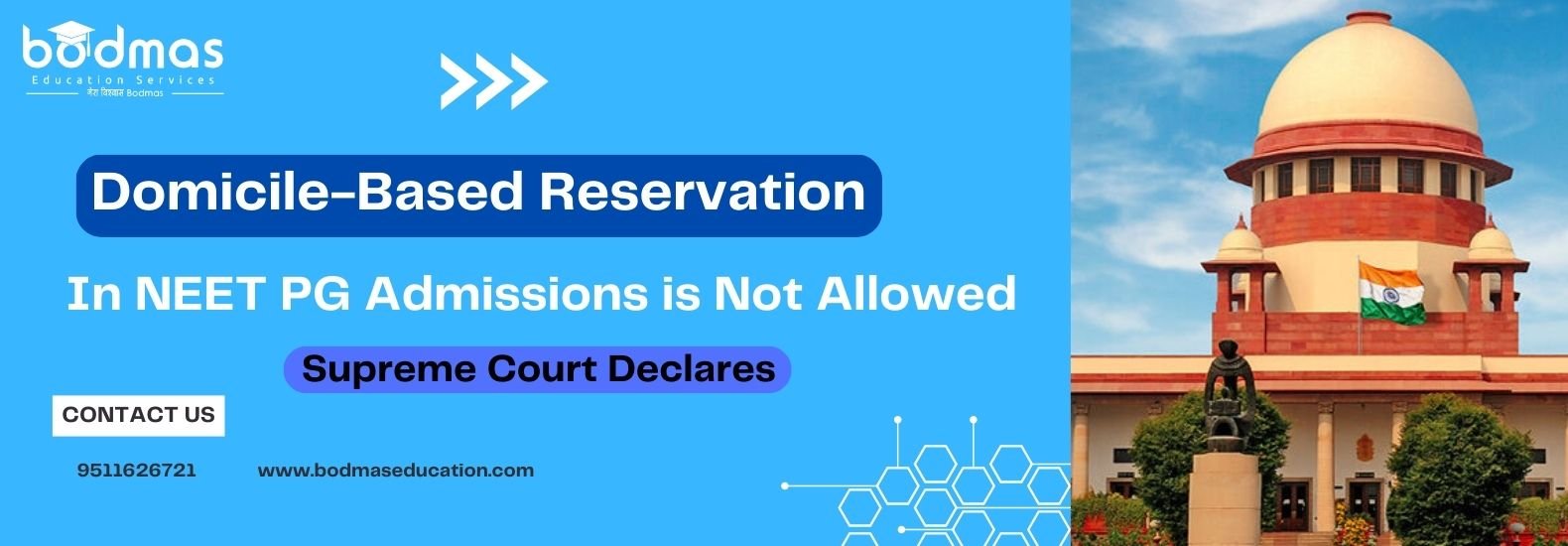Domicile-Based Reservation in NEET PG Admissions Not Allowed, Supreme Court Declares
New Delhi: In a landmark ruling today, the Supreme Court declared that domicile-based reservation for postgraduate medical admissions is unconstitutional, affirming that it violates Article 14 of the Indian Constitution, which guarantees the right to equality. This ruling addresses the issue of state-specific quotas for postgraduate medical seats, which had been in place in various states for years. The bench, comprising Justices Hrishikesh Roy, Sudhanshu Dhulia, and SVN Bhatti, emphasized that medical admissions should be solely based on merit determined by the National Eligibility cum Entrance Test (NEET), rather than a candidate’s place of residence.
The Constitutional Rationale
The bench reiterated that the provision of domicile-based reservations in state quota PG medical seats undermines the fundamental principle of equality before law, as it creates unnecessary distinctions between residents of different states. “Reservation based on residence for PG medical courses is a clear violation of Article 14 of the Constitution,” the judges stated. They stressed that the Constitution envisions equality before the law for all citizens, regardless of their state of origin. The Court also underscored that all Indian citizens are entitled to seek education and opportunities in any part of the country, without discrimination based on domicile-based quotas.
In justifying this view, the bench referred to previous cases, particularly the Pradeep Jain and Saurabh Chandra rulings, which established the foundational principles regarding merit-based admissions and the unconstitutionality of state-specific reservations for medical education. The Court reiterated that India is a unified nation, and citizens should have the right to choose their place of residence and professional opportunities freely, without being restricted by domicile-based reservation policies.
The Impact of the Ruling
While this decision marks a significant shift in the approach to NEET PG admissions, the bench clarified that it would not affect existing students or those already enrolled in postgraduate medical programs under the domicile-based reservation system. The ruling specifically does not disrupt reservations for students already in their PG courses or those who have completed their studies under the residence-based category. Therefore, the decision will only apply to future admissions, ensuring that the transition to merit-based selection will not disrupt the current educational structure.
The bench also pointed out that, while domicile reservations might be applicable at the undergraduate level in MBBS programs, the need for highly specialized medical professionals in postgraduate courses necessitates a fair, nationwide approach based on merit. The Court highlighted the importance of ensuring that the best candidates, regardless of their state of origin, are selected for postgraduate medical training, especially given the growing demand for doctors with advanced expertise across the country.
Future Implications for NEET PG Admissions
This ruling is expected to have significant implications for the NEET PG admissions process moving forward. States that previously implemented domicile-based reservations for postgraduate medical seats will now need to revise their policies to comply with the Supreme Court’s directive. As a result, future admissions to PG medical courses will be based purely on NEET scores and merit, with no preferential treatment for candidates from specific states.
For students aspiring to pursue postgraduate medical education, this decision opens up opportunities to compete on a level playing field, regardless of their state of residence. It also sets a precedent for merit-based selection in other professional courses, reinforcing the importance of equal access to education for all citizens across the country.
Powered by Froala Editor




